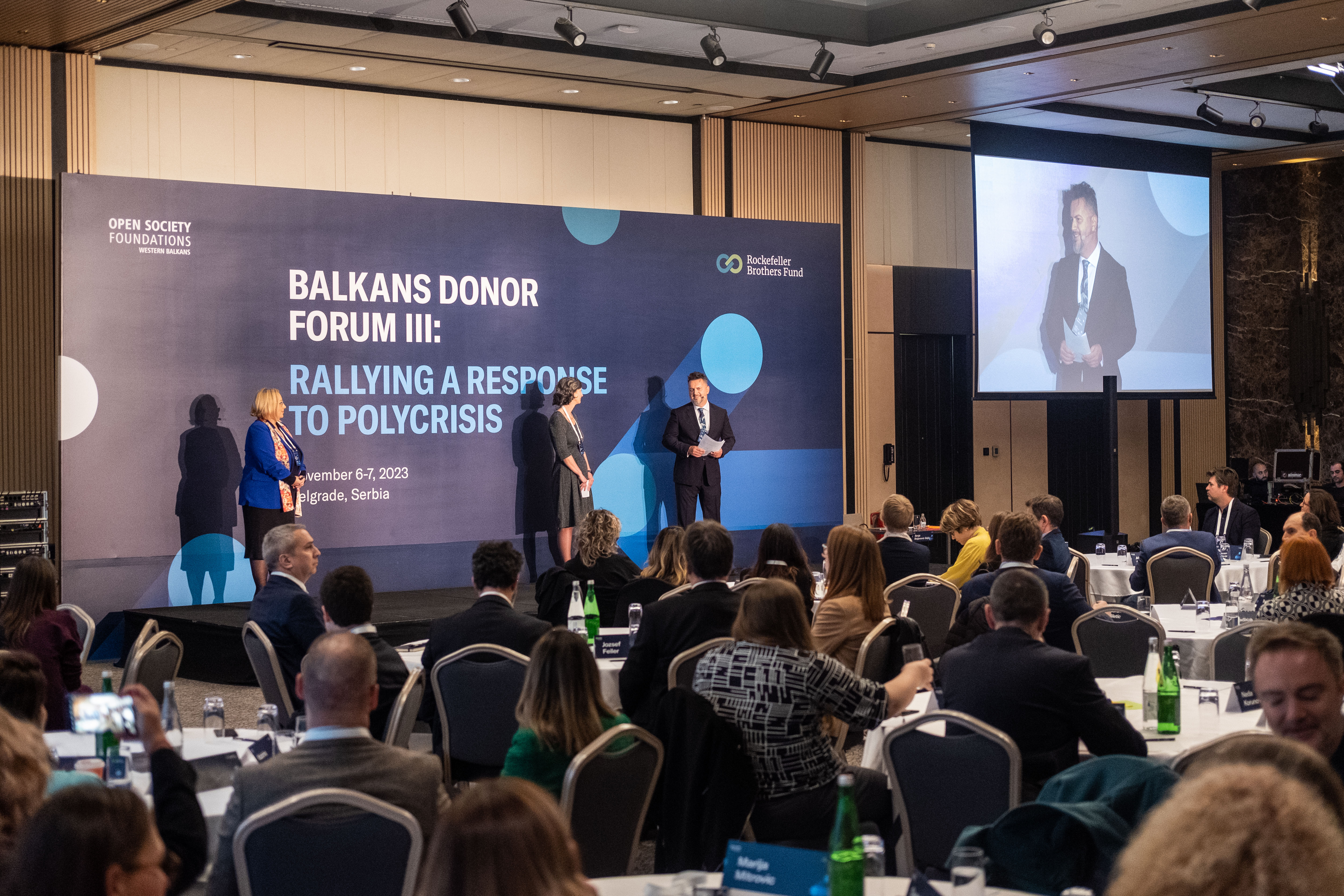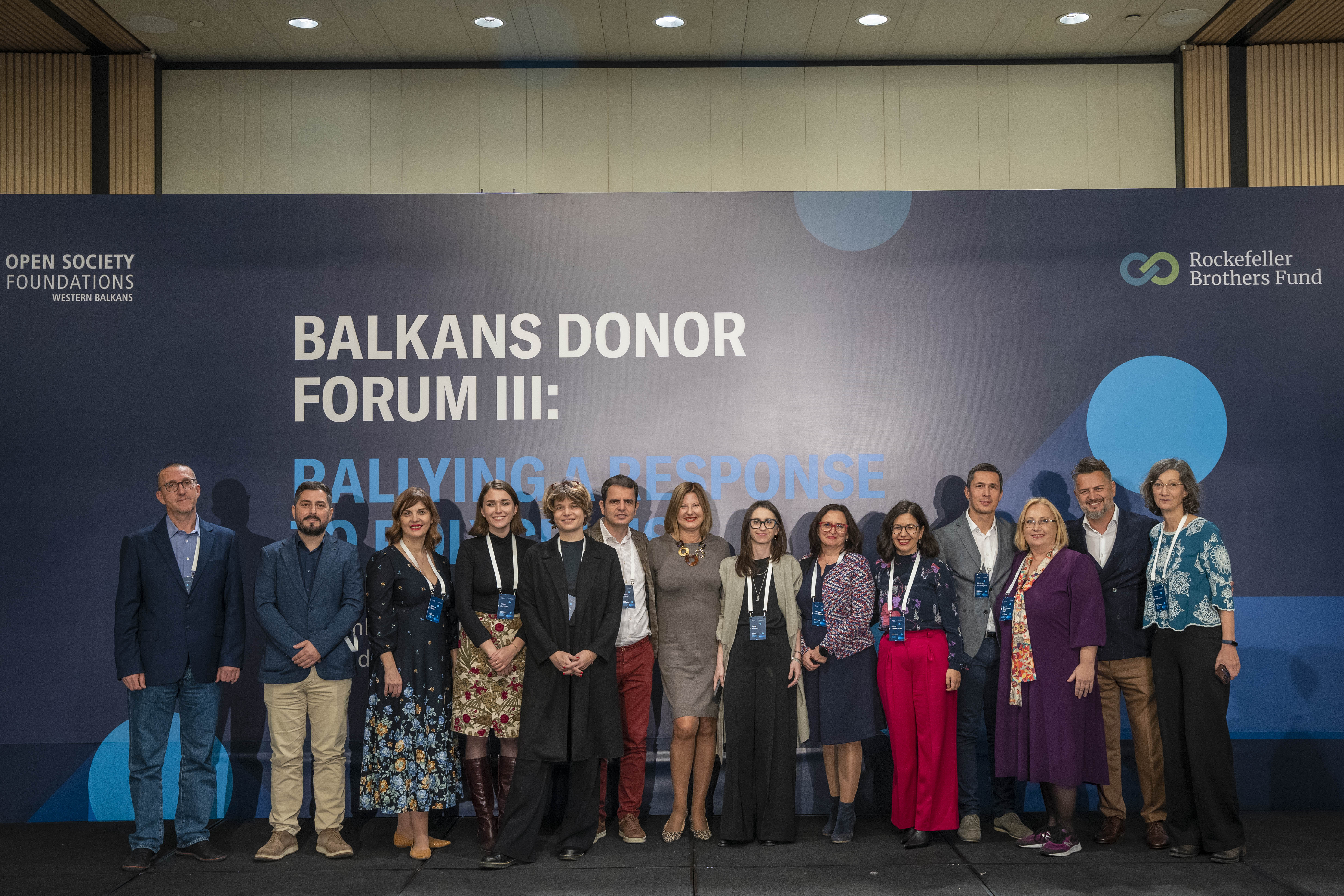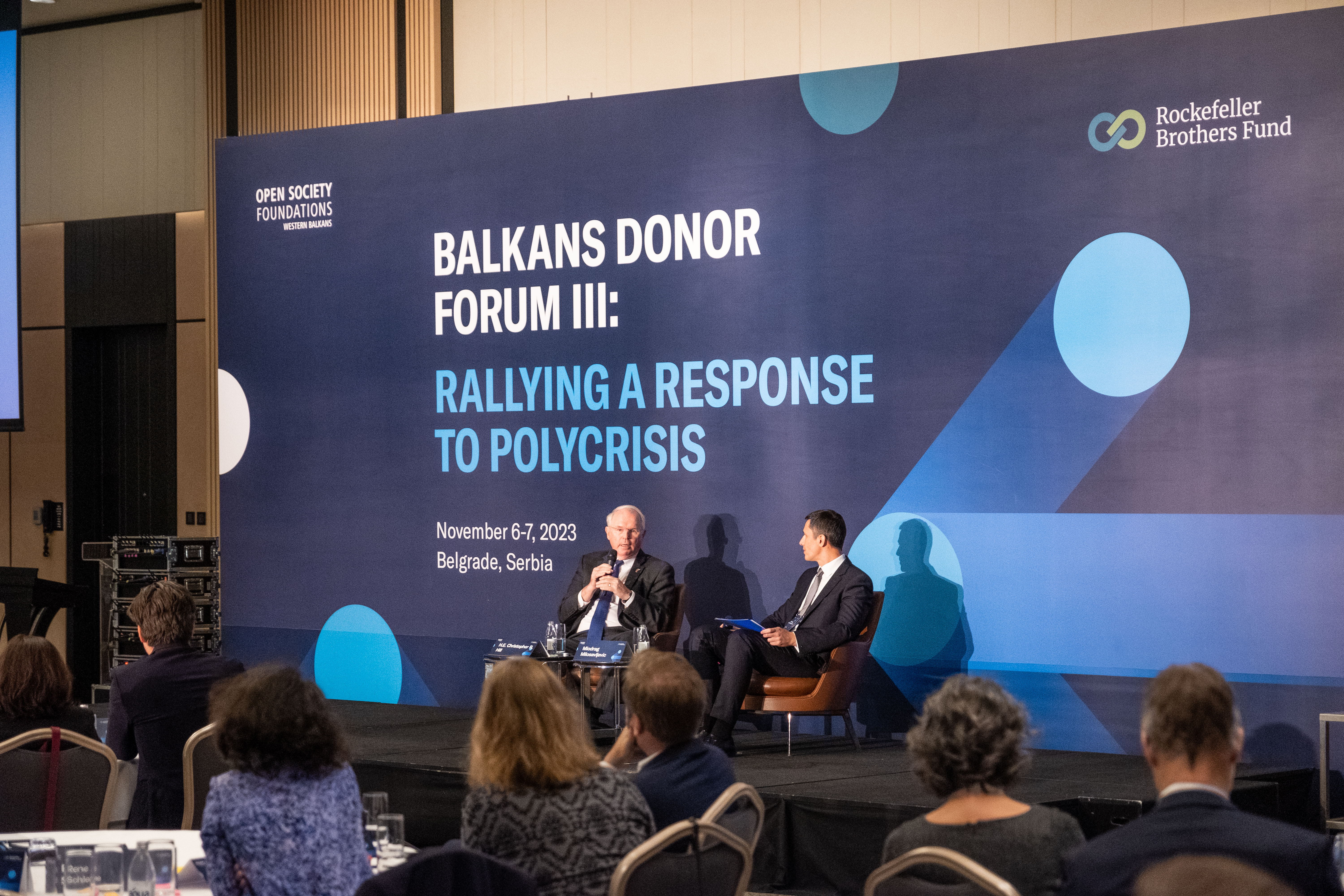VEST
OSF-WB and RBF host third Balkans donor forum
Returning to the joint platform for the first time since 2019, over 150 stakeholders discussed priorities and approaches of the donor community in the Balkans.
On Monday November 6, at Hilton Hotel in Belgrade, Open Society Foundations-Western Balkans and the Rockefeller Brothers Fund kicked-off the third forum of donors working across the South-Eastern European region.
The forum, titled “Rallying a response to polycrisis,” brought together around 150 representatives from over 120 public and private donors, as well as local Western Balkans philanthropies, for the first time since the last convening in Skopje in 2019.
The two-day closed event was structured around plenary sessions which involved mapping of donor trends, reflections on changes and forecasts for the region and Europe, as well as thematic working groups allowing for peer-to-peer re-examination of priorities and approaches.

Welcoming participants from across the region and Europe on Monday afternoon, Andi Dobrushi, Director of Open Society Foundations-Western Balkans, remarked that the ambition of the forum was to discuss the most apt response to the multi-crises affecting societies in the region.
“We at the Open Society Foundations have decided to amplify our impact by launching a compact regional unit, the Open Society Foundations-Western Balkans. This unit will collaborate closely with other progressive actors, both private and governmental, to support regional initiatives in digital transformation, green transition, European integration, and economic and political cooperation." Dobrushi stated.
Joining the welcoming remarks, Mia Vukojević, Western Balkans Program Director at the Rockefeller Brothers Fund, expressed how pleased she was at the number of attendees that firmly confirmed the donor community’s commitment to Western Balkans.

“This is the biggest gathering that focuses exclusively on exchange amongst the public, private and corporate funders that support civil society,” Vukojević said. “In the next two days we will have the opportunity to discuss some of the key challenges in the Western Balkans: defending democracy, peace and security, climate change and preparing for the digital present and future.”
Inviting participants to reflect on current geopolitical developments, keynote speaker, Tim Judah, emphasized the uncertainty marking the current moment.
“You probably want to hear me give some sober and certain ideas about the future and how this can affect your work and so on, but the problem is that not only do we not live in predictable times but worse, we live, more than ever before, in ‘black swan times,’” Judah said quoting Nassim Nicholas Taleb’s notion.
Despite such occurrences making predicting difficult, Judah invited guests to reflect on “deeper, slower, moving changes,” such as the demographic shift experienced globally and particularly in the Western Balkans region.
Judah’s keynote was followed by a lively panel discussion amongst three academics from the region Lura Pollozhani, from University of Graz, Bojan Baca, University of Montenegro and Dzeneta Karabegovic, from University of Salzburg.
Closing the first plenary, US Ambassador to Serbia, Christopher R. Hill addressed the audience.
“The Western Balkans countries need to get to their destination…and the destination is full integration into the West. That is the path that will improve lives for this and future generations,” Ambassador Hill said.

The forum continued with break-out sessions on Tuesday, November 7, with donor representatives discussing major thematic and operational trends in the region, their ongoing interventions and plans for the future. Participants discussed key thematic issues such as climate change, peace and reconciliation, and defending democracy. They also had the chance to discuss in-depth donor approaches, particularly core and flexible funding, pooled funding and regional programming.